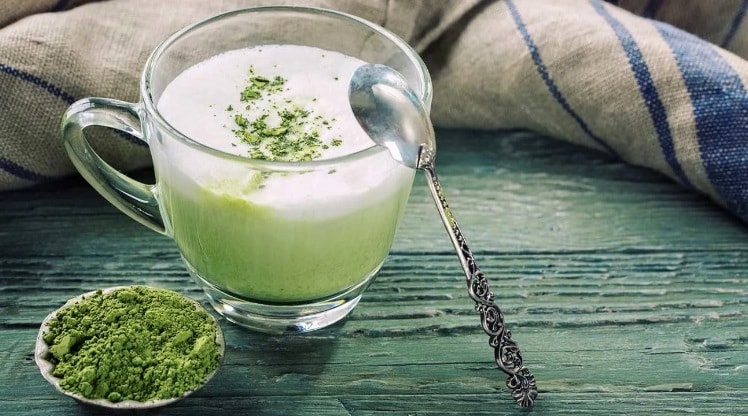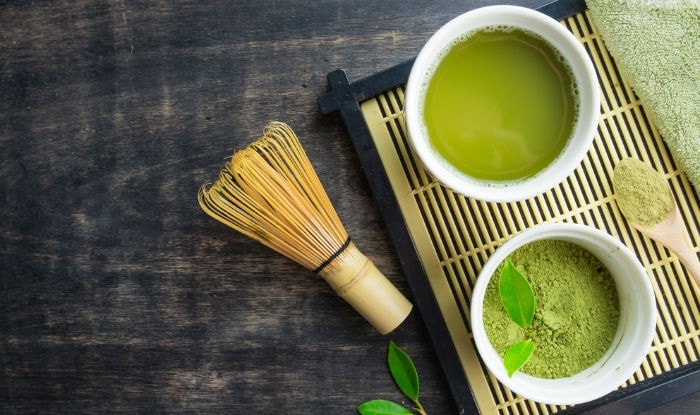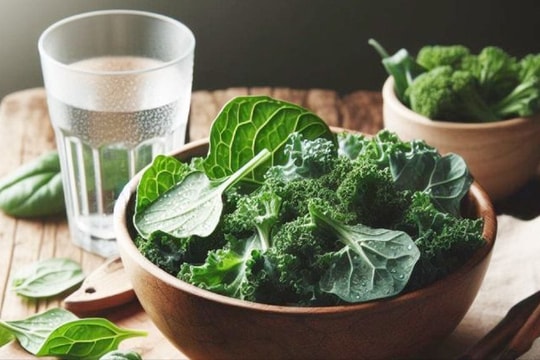The No. 1 Drink in the Country of the World's Longest-Lived People
Studies on matcha and its components have found many benefits, which may help protect the liver, promote heart health and even aid weight loss.
Growing up in Nara, Japan, surrounded by tea fields, matcha was always a part of nutritionist and longevity expert Michiko Tomioka's life. The tea has a strong aroma and a rich, bittersweet taste.

Nutrition and longevity expert Michiko Tomioka (Photo: Michiko Tomioka).
While in high school, she began taking formal tea ceremony lessons. She herself still regularly performs Chado, the traditional Japanese tea ceremony for brewing green tea.
According to this expert, matcha is the number 1 drink that helps increase longevity and she drinks it every day.
Health benefits of matcha
Share onCNBC Make ItMatcha contains key nutrients like vitamins A, C, and K, fiber, protein, and the amino acid l-theanine, which has been shown to improve sleep, reduce stress, and enhance cognitive function, says Michiko Tomioka.
It also contains polyphenols like epigallocatechin gallate (EGCG). Polyphenols are natural compounds found in plants that are high in antioxidants and may help fight disease and inflammation.
Studies also show that matcha may reduce the risk of cardiovascular disease and may also improve gut health.
Here are some health benefits of matcha tea:
Rich in antioxidants
According toHealthline,Matcha is rich in catechins, a type of plant compound in tea that acts as a natural antioxidant. Antioxidants help stabilize harmful free radicals, compounds that can damage cells and contribute to chronic disease.
One study found that supplementing mice with matcha reduced free radical damage and increased antioxidant activity. Adding matcha to your diet may increase your antioxidant intake, which may help prevent cell damage and reduce your risk of certain chronic diseases.
May help protect the liver
The liver is vital to health and plays a central role in detoxification, drug metabolism, and nutrient processing. Some studies have found that matcha may help protect liver health.
A 2015 review of 15 studies found that drinking green tea was associated with a reduced risk of liver disease.
More research is needed to look at the effects of matcha on the general population, as most research is limited to studies examining the effects of green tea extract in animals.
Enhance brain function
Some studies suggest that certain components in matcha may help boost brain function.
Matcha has a higher concentration of caffeine than green tea. It also contains a compound called L-theanine, which helps to modify the effects of caffeine, promoting alertness and helping to avoid the energy crash that can occur after consuming caffeine.

Matcha has a higher concentration of caffeine than green tea (Photo: Healthline).
May help prevent cancer
Matcha contains several compounds that have been linked to cancer prevention. For example, matcha is high in epigallocatechin-3-gallate (EGCG), a catechin that may have powerful anti-cancer properties.
Some laboratory and animal studies suggest it may help prevent certain types of cancer, although more research is needed.
May promote heart health
Some studies suggest that drinking green tea, which has a similar nutritional profile to matcha, may help protect against heart disease.
Green tea consumption has been linked to a lower risk of heart disease than coffee, and some studies suggest it may help reduce the risk of high blood pressure and other complications in people with heart disease.
The compounds in matcha are similar to those in green tea, and some people suggest it may have similar benefits.
Helps you lose weight
Green tea is well known for its ability to promote weight loss and is often found in weight loss supplements. Although most studies have focused on green tea, matcha comes from the same plant and contains similar compounds.
There are many ways to enjoy matcha. You can make traditional matcha tea by sifting 1-2 teaspoons (2-4 grams) of matcha powder into a cup, adding 59ml of hot water, and mixing well with a bamboo whisk. You can also adjust the ratio of matcha powder to water depending on your preferred consistency.

You can enjoy matcha in many different ways (Photo: Getty).
To make a weaker tea, reduce the powder to half a teaspoon (1 gram) and mix it with 3–4 fl oz (89–118 ml) of hot water. To make a stronger tea, mix 2 teaspoons (4 grams) of powder with just 1 fl oz (30 ml) of water.
You can also combine matcha with turmeric in tea or lattes, stir it into milk-based foods and drinks, such as lattes or rice pudding, or try it in desserts, such as matcha ice cream or cookies.
Side effects and risks
Despite its many health benefits, matcha is best consumed in moderation. Matcha contains more caffeine than green tea. While some caffeine can be beneficial, too much can cause side effects, such as increased heart rate.
Some scientists suggest that high amounts of catechins may cause liver problems, although they note that this is unlikely to happen when people consume green tea as food or beverage.
Drinking matcha may also increase your risk of exposure to contaminants like pesticides, chemicals, and even arsenic found in the soil where the tea plants are grown.
Research shows that 338mg of catechins and EGCG per day is safe for adults. This is about 4 grams of matcha or 2 heaped teaspoons/
However, the maximum tolerable amount of matcha powder may vary from person to person. To be safe, make sure to consume matcha in moderation. Also, look for certified organic matcha to reduce the risk of impurities.





